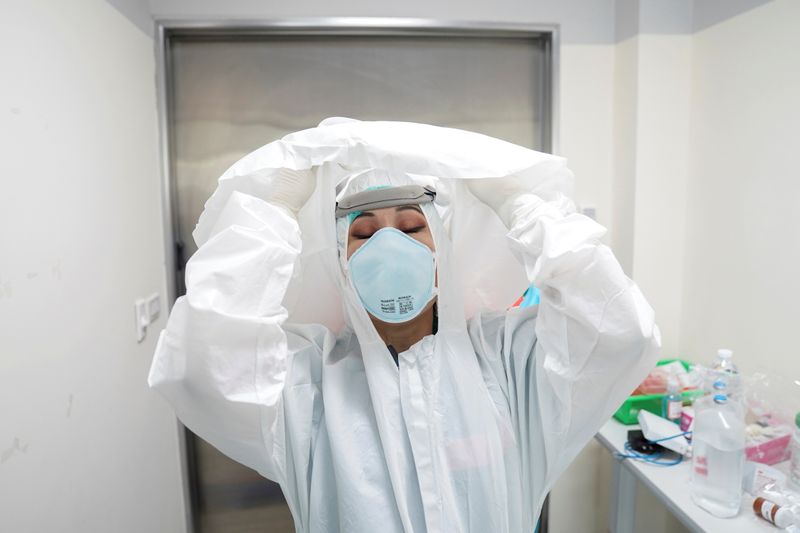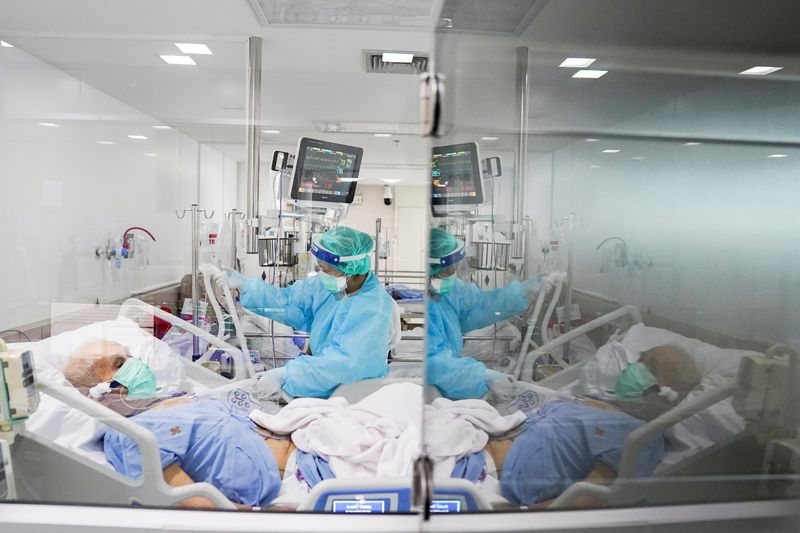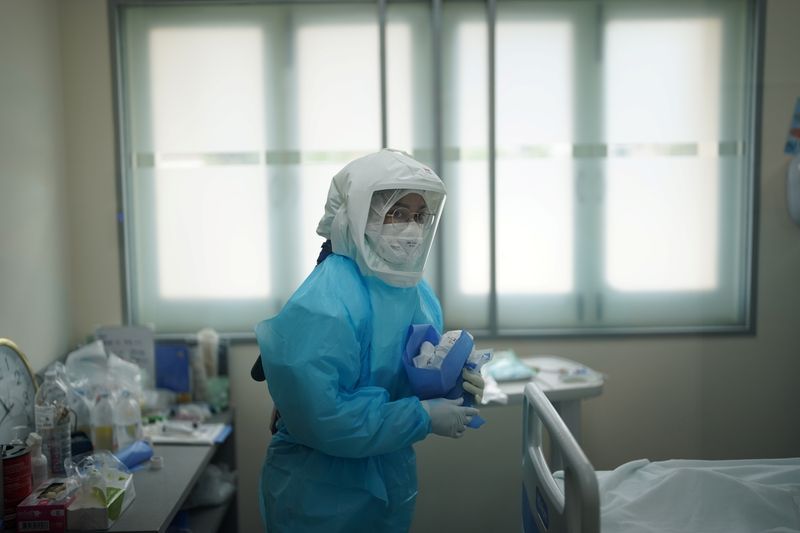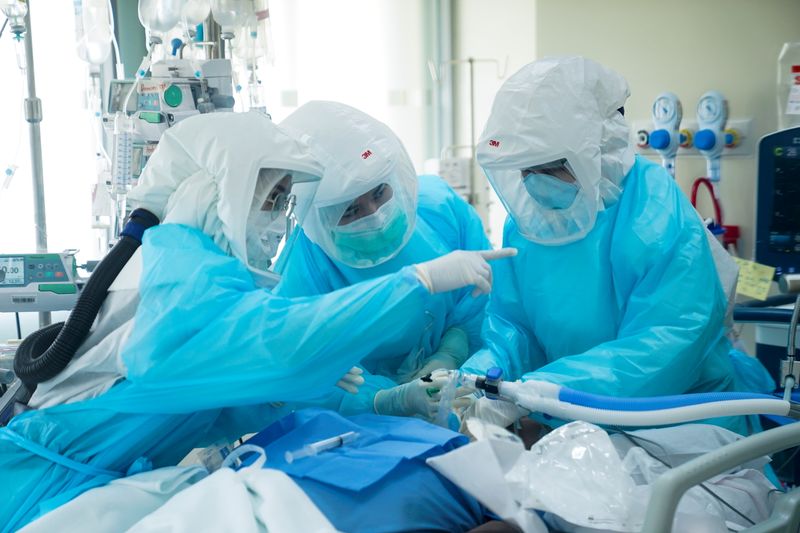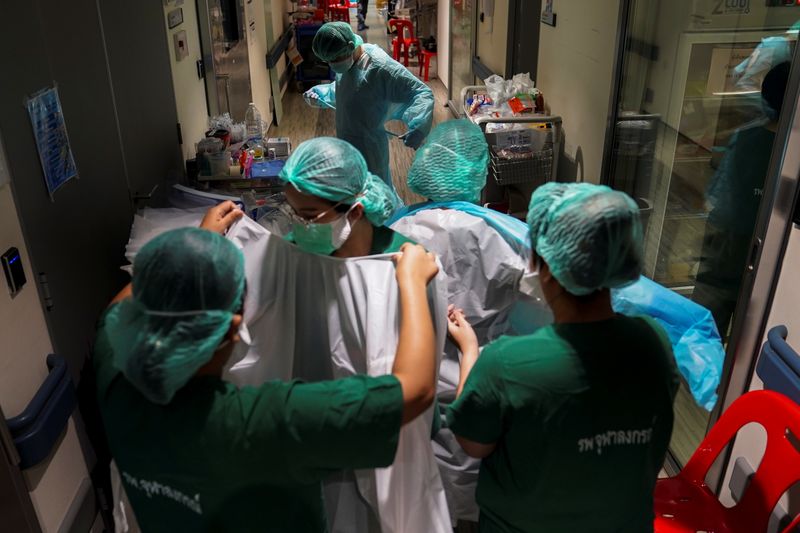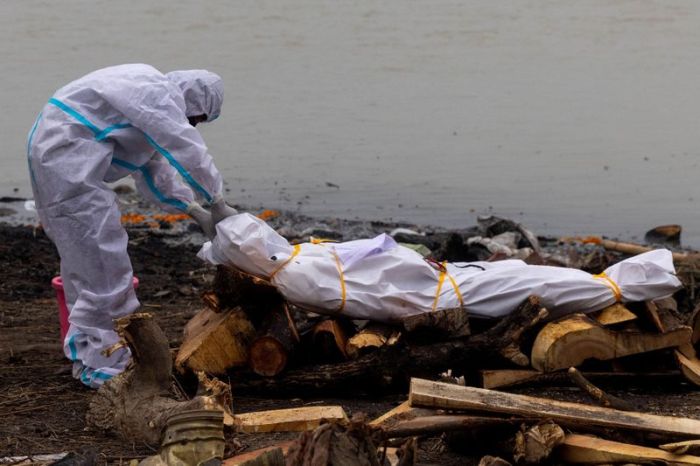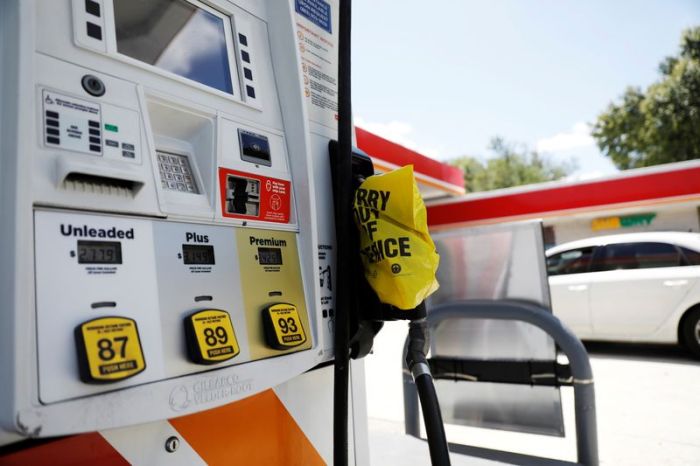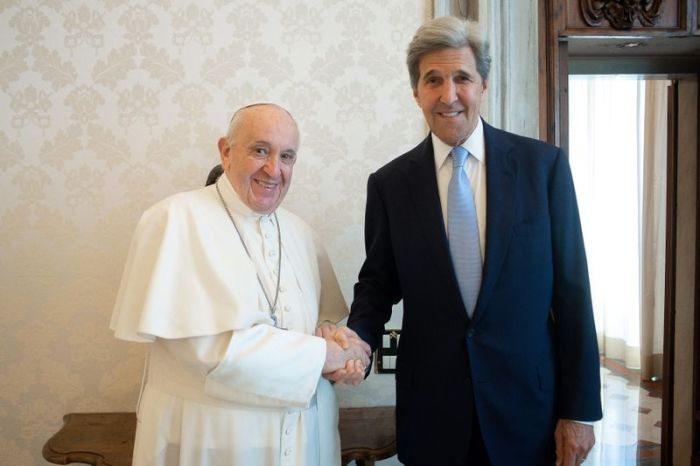BANGKOK (Reuters) – As Thailand struggles to deal with its worst wave of coronavirus infections, staff in the intensive care unit of Bangkok’s King Chulalongkorn Memorial Hospital are fearful of what may be to come.
The Southeast Asian country had managed to contain COVID-19 cases for much of the pandemic, but a third wave that began in April and includes more contagious variants has proven harder to control, putting a strain on medical facilities.
More than a dozen nurses dressed in full personal protective equipment care for COVID-19 patients at the ICU ward each shift, along with up to four doctors.
“Each time I wear three layers of plastic protection. It is extremely hot,” said nurse Veena Samutkalin, 45.
Since starting work at the 40-bed ward about a month ago, Veena has stopped visiting her relatives, worried about the risk of infecting them.
“I am very concerned about my father, who is now 80 years old,” she said. “I don’t want to cause any problems for my family.”
Thailand’s COVID-19 task force said on Sunday 1,228 patients being treated for COVID-19 in hospitals nationwide were in critical condition, with 408 on ventilators.
On Monday, the country reported a daily record of 9,635 new infections and 25 new deaths, bringing the total number of fatalities to 614.
Thailand has administered 2.2 million COVID-19 vaccine doses to frontline workers and high-risk groups, and expects a broader vaccination drive to start in June with locally manufactured AstraZeneca doses.
Veena hopes her father will be able to get vaccinated soon. In the meantime, she urges people take precautions.
“I want the public to follow the social distancing rules until this period is over,” she said.
Manadshaya Bunard, 25, another nurse who recently transferred to the ward, echoed this view.
“I’ve seen many patients with breathing tubes,” said Manadshaya. “So please get the COVID-19 vaccination to avoid the worst-case scenario.”
(Additional reporting by Chayut Setboonsarng; Writing by Ed Davies; Editing by Karishma Singh)

